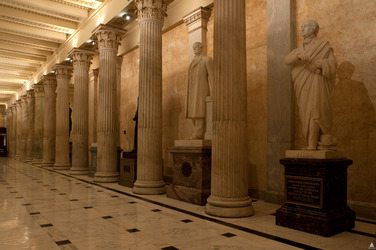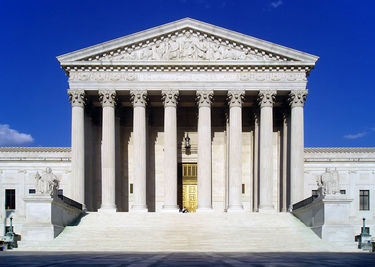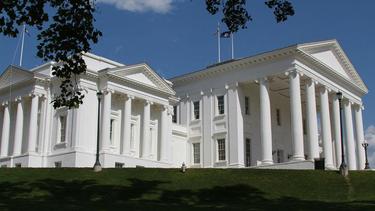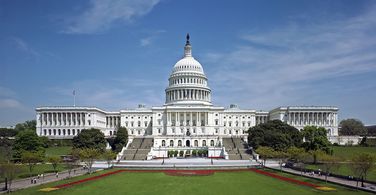Silicon Valley startups explore performance from governmental lobbying
They may be experts of breakthrough in many segments, however startups like Airbnb, etc. are discovering that with regards to Washington, D.C., the earlier tactics work best.
In the last few months, quite a few young technology enterprises have put their faith in the power of money to have an effect on authorities approach and legislation. Several lobbied the government for on the first try, although some others enhanced lobbying attempts by opening fully commited practices in the U.S. capital.
The firms pursuing these kinds of projects are those challenging present business models, in fields much like the sharing economy and streaming content material over the web. And once new business models will develop, they frequently bump up towards aging polices.
Maurice Aguirre Texas: Without doubt, lobbying from the tech community is not new. Microsof company but also IBM happen to have been at it for ages, also Google presently leads the industry in money invested. However, the moves by smaller businesses are significant to some extent because they're at odds with the picture they present of scrappy start-ups wrestling the administration - the same structure they're now having to cozy up to.
In the last 3 months, Fitbit, ... all began lobbying in Evergreen State for the first occasion, each paying D.C. - based lobbying corporations to keep an eye on moves by the federal government and also lawmakers that could possibly have an effect on their business sector.
A couple technology companies have gone a stage further and launched their own internal practice in D.C., using their own lobbyist. An internally lobbyist isn't going to have to split time along with other customers and helps determine a company has a 'seat at the table' in interactions of guidelines or regulatory concerns.
Aereo, the NY company that hopes to stream over-the-air TV to computer screens, renewed its efforts in D.C. after tv stations, cable operators and others managed to convince the Supreme Court that its business system should be against the law.
Maurice Aguirre Dallas: The necessity to lobby is actually greatest in fields that have already solid, established players. Ride-sharing firms are rising against taxi providers, like for example, and media streaming companies are taking on tv stations, cable providers and also the recording field.
These challengers often have deep roots in Washington, are really funded and can't stand the perturbation the Internet has helped bring.
In home entertainment, for example, Netflix devoted $1.3 million on federal lobbying just the past year, although the National Cable and Telecommunications Association spent $20 million. Comcast, Time Warner and a host of entertainment and transmission organizations spent quite a few millions more.
Just a few terminology you are likely to discover within the Maurice Aguirre Dallas DG Group LLP blogging site:
Earmarks: Known to some as "pork barrel," Congressmen use this tool to direct spending to individual projects. Lobbyists work on behalf of their organization or clients to insert funding for their interests into appropriations bills. This practice has become controversial, and one of the components of the lobbying reform bill is a requirement for Congressmen to link their names to a submitted earmark or amendment at least 48 hours before the bill that it has been placed in comes to a vote.
Maurice Aguirre Lobbyist - Multicandidate Political Action Committee: A multicandidate committee can partake in more activities than a non-multicandidate committee. For a PAC to be classified as a multicandidate committee, it must have been registered with the FEC for 6 months, received contributions from more than 50 people, and contributed to five candidates. At that point, the PAC may give $5,000, instead of the $2,300 limit for non-multicandidate PACs. For the definition of PAC, please see below.
National Historic Preservation Fund: The Department of Interior's matching grant program funding the states, tribes, and certified local governments, and making grants to the National Trust for Historic Preservation for specific projects. Maurice Aguirre DG Group LLP
Honest Leadership and Open Government Act (HLOGA): Passed in 2007 as an amendment to the Lobbying Disclosure Act, this law expanded disclosure requirements for lobbyists and Members of Congress. Lobbyists must now file quarterly reports of lobbying activities and state in a semi-annual certification that they have read, understand, and not violated House or Senate gift and travel rules. They must also detail in their semi-annual reports any contributions to political campaigns or to events to recognize a Member if the total spent during the filing period exceeds $200. On the other hand, Members of Congress must disclose any sponsorship of earmarks. Other provisions of HLOGA relate to lobbyists' spending on gifts and travel for Members, and an expansion in the "cooling off" period for former Senators looking for private sector positions.
They may be experts of breakthrough in many segments, however startups like Airbnb, etc. are discovering that with regards to Washington, D.C., the earlier tactics work best.
In the last few months, quite a few young technology enterprises have put their faith in the power of money to have an effect on authorities approach and legislation. Several lobbied the government for on the first try, although some others enhanced lobbying attempts by opening fully commited practices in the U.S. capital.
The firms pursuing these kinds of projects are those challenging present business models, in fields much like the sharing economy and streaming content material over the web. And once new business models will develop, they frequently bump up towards aging polices.
Maurice Aguirre Texas: Without doubt, lobbying from the tech community is not new. Microsof company but also IBM happen to have been at it for ages, also Google presently leads the industry in money invested. However, the moves by smaller businesses are significant to some extent because they're at odds with the picture they present of scrappy start-ups wrestling the administration - the same structure they're now having to cozy up to.
In the last 3 months, Fitbit, ... all began lobbying in Evergreen State for the first occasion, each paying D.C. - based lobbying corporations to keep an eye on moves by the federal government and also lawmakers that could possibly have an effect on their business sector.
A couple technology companies have gone a stage further and launched their own internal practice in D.C., using their own lobbyist. An internally lobbyist isn't going to have to split time along with other customers and helps determine a company has a 'seat at the table' in interactions of guidelines or regulatory concerns.
Aereo, the NY company that hopes to stream over-the-air TV to computer screens, renewed its efforts in D.C. after tv stations, cable operators and others managed to convince the Supreme Court that its business system should be against the law.
Maurice Aguirre Dallas: The necessity to lobby is actually greatest in fields that have already solid, established players. Ride-sharing firms are rising against taxi providers, like for example, and media streaming companies are taking on tv stations, cable providers and also the recording field.
These challengers often have deep roots in Washington, are really funded and can't stand the perturbation the Internet has helped bring.
In home entertainment, for example, Netflix devoted $1.3 million on federal lobbying just the past year, although the National Cable and Telecommunications Association spent $20 million. Comcast, Time Warner and a host of entertainment and transmission organizations spent quite a few millions more.
Just a few terminology you are likely to discover within the Maurice Aguirre Dallas DG Group LLP blogging site:
Earmarks: Known to some as "pork barrel," Congressmen use this tool to direct spending to individual projects. Lobbyists work on behalf of their organization or clients to insert funding for their interests into appropriations bills. This practice has become controversial, and one of the components of the lobbying reform bill is a requirement for Congressmen to link their names to a submitted earmark or amendment at least 48 hours before the bill that it has been placed in comes to a vote.
Maurice Aguirre Lobbyist - Multicandidate Political Action Committee: A multicandidate committee can partake in more activities than a non-multicandidate committee. For a PAC to be classified as a multicandidate committee, it must have been registered with the FEC for 6 months, received contributions from more than 50 people, and contributed to five candidates. At that point, the PAC may give $5,000, instead of the $2,300 limit for non-multicandidate PACs. For the definition of PAC, please see below.
National Historic Preservation Fund: The Department of Interior's matching grant program funding the states, tribes, and certified local governments, and making grants to the National Trust for Historic Preservation for specific projects. Maurice Aguirre DG Group LLP
Honest Leadership and Open Government Act (HLOGA): Passed in 2007 as an amendment to the Lobbying Disclosure Act, this law expanded disclosure requirements for lobbyists and Members of Congress. Lobbyists must now file quarterly reports of lobbying activities and state in a semi-annual certification that they have read, understand, and not violated House or Senate gift and travel rules. They must also detail in their semi-annual reports any contributions to political campaigns or to events to recognize a Member if the total spent during the filing period exceeds $200. On the other hand, Members of Congress must disclose any sponsorship of earmarks. Other provisions of HLOGA relate to lobbyists' spending on gifts and travel for Members, and an expansion in the "cooling off" period for former Senators looking for private sector positions.




